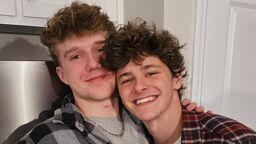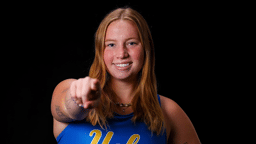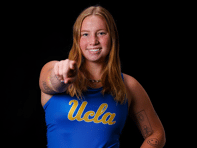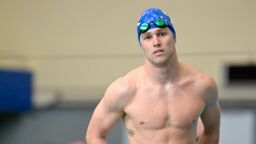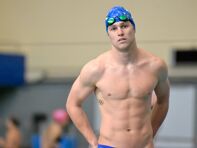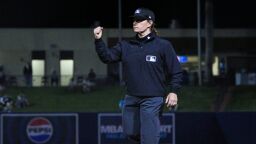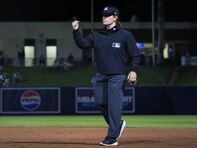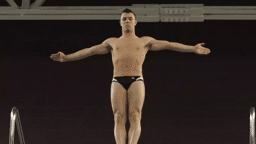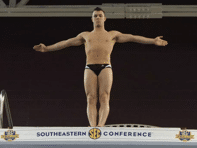At 17, I didn’t have the courage to come out to anyone, let alone my rowing crew.
I remember driving to rowing one day, sitting in the bus — all my crew friends were simply chatting about their days and I just sat there in silence. I remember how I felt that day.
I pictured myself standing up and shouting out as loudly as I could: “I am gay.” In reality, I just closed my eyes tight and, in doing so, closed myself off further from my crew.
This was the first time I had thought I might have the courage to come out. It took me a few more years to reach that step, and that was only after I had left the thing I loved the most.
Just after turning 18, I was on track to join the South African rowing squad. I had done enough to secure my spot and I had everything lined up. But the fear of not being accepted drove me away from my goals, my crew and my coaches.
I never felt like I had anyone I could turn to for help. I was paralyzed with so much fear that it started to affect my performance. I bought into the belief that being gay made me not good enough to compete, and that no one would accept me.
As an athlete, you spend so much time with your crew that I thought they would just know that I was different. I started picking fights with them, first over small things and then over anything that I thought would distract them from the fact that I was gay.
The closer I got to building up the courage to come out, the more scared I got and the stronger my belief was that I wasn’t good enough to compete. Imagine waking up every day and telling yourself that you are not good enough. I pushed everyone further and further away until I had isolated myself so much that it started to hinder my performance.
Trial selection came and I remember sitting apart from everyone else. Some of the guys tried to come chat to help me, but I had bought my ticket and was determined to stick to it, no matter the cost.
On that day, race after race, I got slower and slower. Everyone who was paired with me didn’t want to row with me — one of the guys screamed at me in the race to just pull harder. It reinforced the belief that I was not worthy. I was alone.
When I drove home that day, I just started crying. I pulled the car over, my body shaking and aching in pain. I started screaming and hitting the steering wheel over and over again. I screamed as loudly as I could. It took me two days to recover. I stopped rowing that day — something inside of me finally broke. Rowing had brought me so much joy, now it was scarred with pain.
Two years later, I came out to my family. I could no longer deny who I was. I know I hurt my mom that day, but she is still my biggest supporter. When my mom told my older sisters, they took me out for coffee and told me that it would all be OK. They just sat there and then started discussing ordinary things, as if nothing had even changed, because nothing had.
I had gotten so caught up in trying to control how others would see me that I lost who I was.
I had gotten so caught up in trying to control how others would see me that I lost who I was. All that pain and frustration I went though was largely built up in my head and in my body. I know I’m lucky to have never had a negative reaction from anyone I have told.
Our biggest critics are ourselves and that kept me away from rowing for a long time. After coming out, I accepted who I was but I still felt like I wasn’t good enough. It was like I was running outdated software, like using Windows 95 in 2019.
Rowing was always on my mind — that feeling you get when you accelerate a boat across perfectly flat water, how at that moment nothing can go wrong and everything falls into place. It is a mental high that I was still chasing after I came out and although I tried to find it in other sports, ultimately my thoughts always came back to rowing.

Getting back in the boat
It was around this time that I my drive for helping others started to grow. I reached out to a handful of schools who offered rowing and eventually landed my first assistant coaching position. But I was still a bit reserved and inside I felt like I was limiting myself.
I was on the sideline, always doing enough, but never allowing myself to be the coach I knew I could be. I developed technically and strove to understand the rowing stroke in as much detail as possible, but I was too afraid to truly connect with my rowers.
I still worried that if I got close to the kids, that they would only see me as gay and not everything else that makes me who I am. I wanted them to see me as a coach and a mentor — as someone they could trust to always put their interests first. I didn’t want to just be this one thing to them.
I wasn’t closeted anymore, and my crew knew I was gay, but I kept hiding all the other sides of me. When I became head coach, I wasn’t only responsible for my rowers, but also other young coaches. I knew something had to change.
One day a teacher and a mentor sat me down and explained how there are two side to being an educator. On one side, you have to know the facts and being able to explain them so others can understand. On the other side you have to be able to connect with the students you are teaching so that they can get excited about the subject matter.
But, he said, it was about balance. You couldn’t be your students’ friends and let them coast off and not really learn anything. Nor could you be like a parrot and just repeat the facts verbatim to them. He explained how I needed to open up more and connect with my crew if I truly wanted to succeed.
I just didn’t realize that the protective walls I’d built were slowly stifling my deepest desire.
With renewed courage and support I slowly started to understand that my Windows95 software needed an urgent update. I was craving the connection, I just didn’t realize that the protective walls I’d built were slowly stifling my deepest desire.
I learned to connect with my rowers, to be more open and to share my own insecurities. It helped me to teach them that we all have moments of fear or uncertainly, but that we are not alone in this.

Being in the closet taught me all the wrong things. It taught me fear, that I was not good enough and that I should be closed and reserved. It taught me not to trust people. Through learning my real truth — that being gay was who I was meant to be — I now understand that it is OK to say: I don’t have the answer, but let’s find the solution together. I’m able to be open and really see others for who they truly are.
Today, as a coach, I make a concerted effort to read between the lines and notice any changes in my crew. I try to ensure that every person that I coach, no matter their skill level, knows that they are not alone. With anything they have to face, no matter the size, it all matters. They all matter.
My experiences have shown me that we all want to be loved and we all want to achieve in anything we do. I am grateful for everything I went through, it has made me into the person and coach I am today.
Marco Biagio, 32, moved to Germany in 2019 with his husband to coach rowing. He coaches the U19 and U23s crews from the Mannheimer rowing clubs. His aim is to inspire every crew member to go all out for their passion and learn the life lessons that sports has to offer. He can be reached by email: [email protected], Twitter: @Marco__Biagio and Instagram: marco__biagio.
Story editor: Jim Buzinski
If you are an out LGBTQ person in sports and want to tell your story, email Jim ([email protected]).





